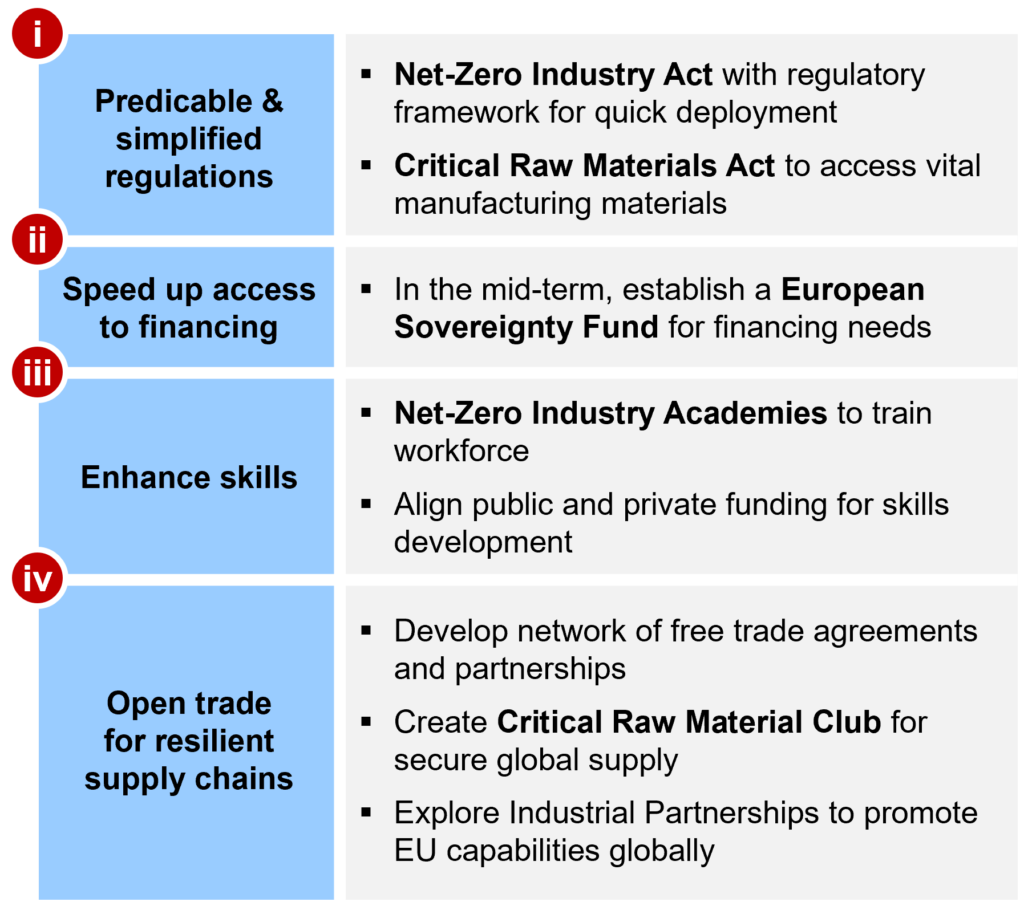
President Joe Biden kicked off the decarbonization race by signing two monumental pieces of legislation: the Infrastructure Investment and Jobs Act (IIJA) and the Inflation Reduction Act (IRA), which designated $370 billion in new funding for green infrastructure. In response, the European Commission recently announced the Green Deal Industrial Plan (GDIP). The plan will divert $272 billion from existing EU funds to accelerate net-zero industrial transformation and level the playing field globally. The plan has four pillars: a predictable and simplified regulatory environment, faster access to sufficient funding, enhanced skills, and open trade for resilient supply chains.

The first pillar has three important initiatives: the Net-Zero Industry Act, the Critical Raw Materials Act, and the reform of electricity market design. The Net-Zero Industry Act addresses technologies contributing to decarbonization by enhancing information, reducing paperwork, and simplifying access to grants. In addition, the Act reinforces the development of CO2 storage and capture to achieve an annual 50 million tons of injection capacity by 2030. The second initiative, the Critical Raw Materials Act, sets no more than 65% of the EU’s yearly consumption of critical raw materials such as Nickel, Cobalt, and Lithium, from a single third country. Finally, the third initiative is reforming the electricity market to secure sustainable, resilient, and cheaper energy for European consumers.
The GDIP supports, simplifies, and accelerates green investments, making the EU a competitive location. Will the EU’s advances be enough to stop companies from migrating to the United States? GDIP does support climate companies in funding their infrastructure in the EU. However, the IRA has been in effect for over six months, meaning that GDIP still must prove its effectiveness to level the playing field, primarily related to how fast the EU can release public funding.
Independent of the political position, these plans will inevitably help companies reduce carbon emissions and become net-zero. Decarbonization technologies will be developed and launched faster, improving energy security in both markets. We expect the green industry trend among the U.S. and Europe will accelerate the momentum towards becoming net-zero.
ADI is active in the energy space and continuously monitors the impacts of these green initiatives. Subscribe to our newsletter or reach out to learn how ADI can help your business.
– Maria Eduarda Lopes



















